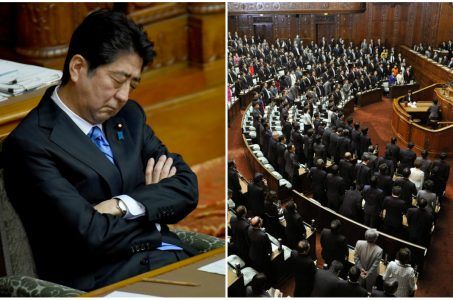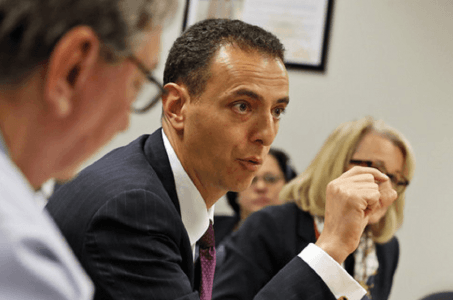Missouri Gaming Commission Conflict Expands, Investigation Demanded
Posted on: April 18, 2020, 04:00h.
Last updated on: April 19, 2020, 10:37h.
A proliferating dispute has broken out between some members of the Missouri Gaming Commission, as Executive Director David Grothaus is poised to resign within two weeks after he was reportedly frustrated in his efforts to cut costs at the agency.

This week, Commissioner Daniel Finney, a Democrat, alleged that commission Chairman Mike Leara, a Republican, withheld key information. It apparently relates to a vote taken in a private session, the St. Louis Post-Dispatch reported.
But Leara told the newspaper the vote did not represent final action by the commission. As such, it apparently remains private.
Things that were touched upon were just not things that are ready for public consumption,” Leara told the Post-Dispatch. “It was an uncomfortable moment, but I’m not going to get into a back and forth.”
Finney also wants an inquiry on Leara, the report said. Finney has additionally requested the state once again audit the regulatory agency.
The request was made to State Auditor Nicole Galloway. She is considering the proposal, the Post-Dispatch said.
“The Gaming Commission has brought in $300 million-$400 million in tax revenue every year for the last several years. It is an important and complex commission. It needs to be audited,” Finney wrote in his request, the Post-Dispatch reported.
Leara brushed off the proposed audit. “My reaction is ‘why?’” Leara told the Post-Dispatch earlier this week. “I’m not aware of anything that would require an audit.”
This week, the newspaper also reported Finney claims Leara wants the agency’s deputy director to quit the post, just as the executive director is about to leave. Leara also said an “investigation” on himself “is not a problem,” the Post-Dispatch said.
Highway Patrol, Gaming Commission Officials Disagree
The Post-Dispatch earlier revealed Grothaus had claimed some members of the Missouri Highway Patrol, who work at the state’s 13 casinos, took part in “guerrilla warfare” after he tried to replace them with civilian employees. Civilian workers would receive less money than highway patrol officers.
Patrol officers earn higher fringe benefits than civilians. The officers are also given “excessive vehicle expenditures that are not needed for the job they perform,” Grothaus said.
“It now seems that there is more interest in protecting the assignments of highway patrol officers than in ensuring a sound, proactive, technically competent, top-notch regulatory MGC effort,” Grothaus claimed in correspondence published by the Post-Dispatch. “It has become obvious that the direction of the commission under my leadership is incompatible with the vision of certain commissioners.”
“I sense that much of the criticism of my management is in direct response to my effort to seek accountability for these expenses,” Grothaus further wrote in the letter.
Slot-Like Machines Banned
There also has been an ongoing dispute in Missouri over slot-like gaming machines. Last month, the Missouri Department of Health and Senior Services banned using slot-like machines and other coin-operated devices located in gas stations and similar venues, according to the Post-Dispatch.
The Missouri ban will be in place for an indefinite period.
Related News Articles
Most Popular
The Casino Scandal in New Las Vegas Mayor’s Closet
This Pizza & Wings Costs $653 at Allegiant VIP Box in Vegas!
Sphere Threat Prompts Dolan to End Oak View Agreement
MGM Springfield Casino Evacuated Following Weekend Blaze
Most Commented
-
VEGAS MYTHS RE-BUSTED: Casinos Pump in Extra Oxygen
— November 15, 2024 — 4 Comments -
VEGAS MYTHS RE-BUSTED: The Final Resting Place of Whiskey Pete
— October 25, 2024 — 3 Comments
















Last Comment ( 1 )
The ban on slot like machines has obviously not taken effect as they are in every gas station seemingly throught Jefferson and Franklin counties. I have hoped for years that an audit of the gaming commission and Missouri lottery. It is sorely overdue, especially when casinos post odds of above 90% but only one machine in the building at any one time ( and it changes at random) has to meet the posted odds. As a gamer I have personally noticed the slot machines getting tighter over the past say 7 years. Who is protecting the consumer and without an audit how do we know all is above board? Patrons have to follow the rules by force, so should the gaming institutions and overseers. Also, the school districts are suffering financially but shouldn't if the lottery funds are being spent as they should. I don't know personally if the two are connected but think it should all face audits.